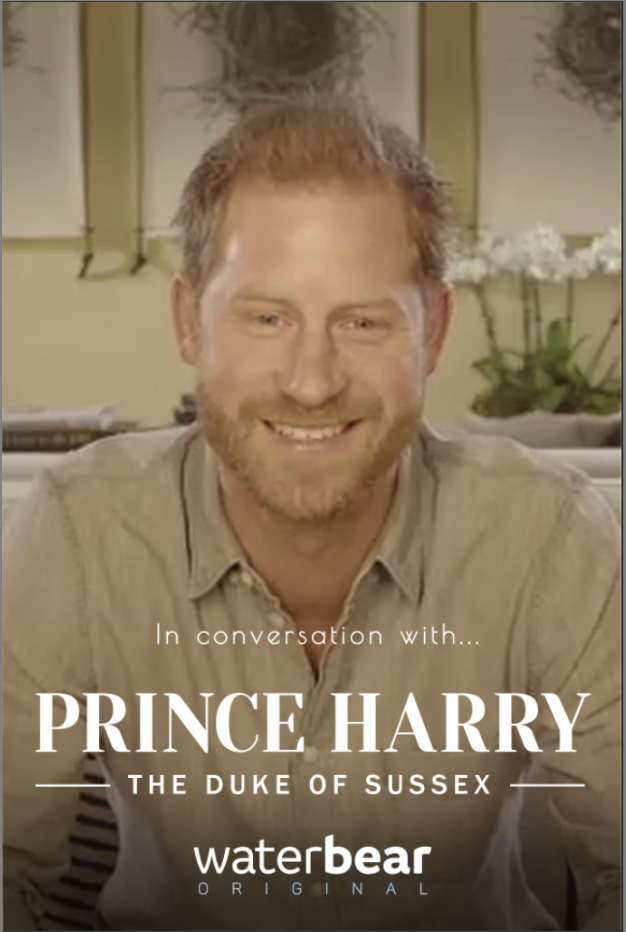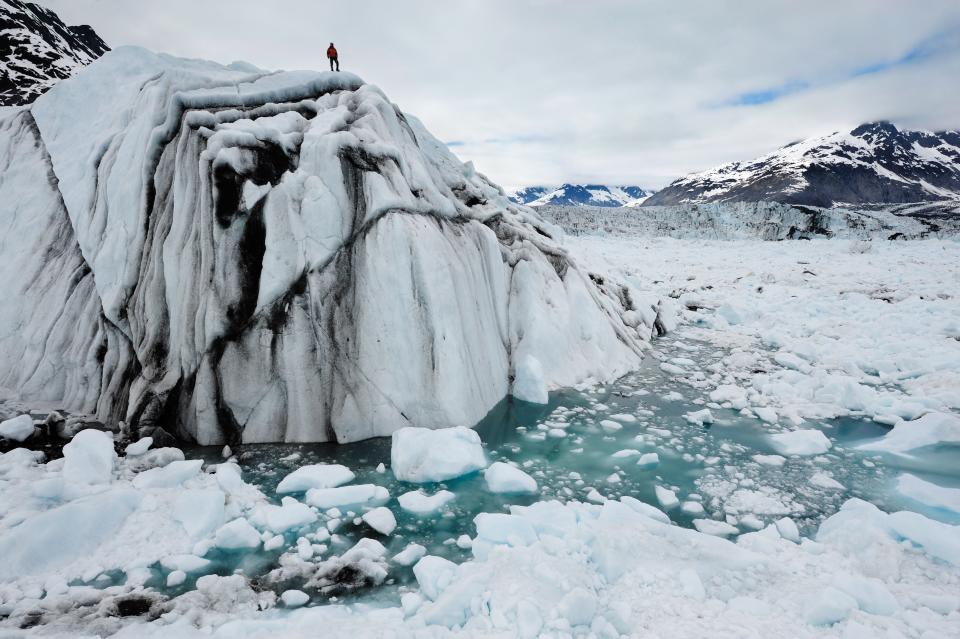‘We can’t steal their future’: Prince Harry says fatherhood has galvanised his environmental efforts and warns against leaving world ‘on fire’

Prince Harry in interview aired on 1 December, 2020
(WaterBear)The Duke of Sussex has said that becoming a father galvanized his efforts to tackle environmental issues and the climate crisis, amid worries of leaving children with a world which is “on fire”.
Prince Harry made the remarks while voicing his support for a new Netflix-style platform for climate and nature documentaries, launching on 1 December called WaterBear Network.
“The moment you become a father, everything really does change,” he said. "You start to realise, what is the point of bringing a new person into this world, if they get to your age and it’s on fire?
He added: “We can’t steal their future. I’ve always believed that, hopefully, we can leave the world in a better place than when we found it.
“We really need to take a moment and think, how do we get what we need and have our desire fulfilled without taking from our children and generations to come?”
The Duke and his wife Meghan currently live in California with their one-year-old Archie. The Duchess of Sussex also opened up about the couple’s heartbreak after she suffered a miscarriage this summer, in an op-ed published by The New York Times last week.
The prince was speaking in his capacity as head of Africa Parks, the conservation group he has been president of since 2017, during the discussion with WaterBear chief executive, Ellen Windemuth, and head of strategy, Sam Sutaria.
He spoke about the lasting impact that Africa has had on his life since his first visit as a young boy following the death of his mother, Princess Diana.
“I travel all over the world and anyone that’s visited Africa says the same thing… there’s something in the air, that ends up running in your blood and no matter what experience you have, it just pulls you back, and you want to be back there again," Prince Harry said.
"I first traveled [to Africa] when I was 12 or 13 years old, straight after I lost my mum and the sense of escapism and space that the continent of Africa afforded me is something that I will be eternally grateful for.
“The smiles, the enjoyment and the energy of life that these communities have, it’s so different from the way that everybody over here lives. I think it’s so powerful.”
The duke also joked about his attempts at dancing during the royal’s official visit to southern Africa in 2019 with Meghan and Archie, after Mr Sutaria complimented him on his moves.

A scene from Chasing Ice, an Emmy Award winning documentary which features on the WaterBear platform
James Balog/Extreme Ice Survey“Dancing when all the cameras are there is my idea of hell,” Prince Harry said. “You can’t help it… I’m trying to work my way through people and they grab your hand and say let’s dance, then my wife starts dancing… I know that people are going to laugh at me.”
The duke said that protecting the natural world needed "doers" and that he had been inspired by WaterBear’s ability to create a platform of documentaries from 80 NGOs, noting that it was “hard to do that”.
The royal also shared his thoughts on the impact of the Covid-19 pandemic on the environment, and on ourselves.
"It has been a universally tough year for everybody,” Prince Harry said. “Someone said to me at the beginning of the pandemic that it’s almost as though Mother Nature has sent us to our rooms for bad behavior, to really take a moment and think about what we’ve done.
He added: “It’s certainly reminded me, as it has probably reminded all of us, how interconnected we all are. Not just as people but through nature. We take so much from her but we rarely give anything back."
African Parks was among the 20 leading wildlife organisations which were part of The Independent’s landmark agreement earlier this month on the urgent action needed to avert another pandemic.
The declaration, which was brokered as part of our Stop The Illegal Wildlife Trade campaign, was delivered to G20 leaders as they joined their annual summit, this year hosted by Saudi Arabia and held virtually.
The Wildlife Conservation 20, or WC20, said in the joint declaration that Covid-19 jumped from animals to people because of humanity’s increasingly unbalanced relationship with the natural world.
“Covid-19 has been a wake-up call to everyone on this planet. Now is the time to value and invest in nature by developing sustainable nature-based economic stimulus packages that embrace a One Health approach and address long-term planetary health, food security, poverty alleviation, climate change, and biodiversity loss and work towards achieving the UN’s Sustainable Development Goals," the group told the G20 leaders in a statement.
“That is why the WC20 calls on the G20 nations to implement greater investment in addressing this critical present imbalance with nature. Otherwise, the natural world, on which we all rely, will not be safeguarded for the long-term well-being and security of current and future human generations, and for all life on earth.”

The WaterBear launch is also being backed by activist and actress, Lily Cole, Game of Thrones star and environmentalist, Maisie Williams, and Dr Mya-Rose Craig, an ornithologist and activist.
Williams said that she was “so excited” to be part of the WaterBear Network.
“This truly groundbreaking platform gives us the opportunity to familiarise ourselves with important, educational content focusing on the sustainability of our planet, empowering us to question the status quo and consider how we can contribute to permanent, effective change,” she said.
"The power to save our planet is in all of our hands, and WaterBear is handing us the tools. I am excited to be joining them on this journey to make further change by raising awareness for issues us and future generations face.”
The network was named after tardigrades, commonly known as “water bears”, one of the most resilient creatures in the world which can survive in the most extreme conditions, from the rainforest to Antarctica.
The documentaries on the platform are inspired the UN’s Sustainable Development Goals and come from more than 80 NGOs including The Independent’s campaign partner, Space for Giants, along with GreenPeace, WWF, Conservation International, Sea Shepherd, the Jane Goodall Institute and African Parks.
One of the originals is Africa’s Hidden Seaforest, the story of carbon sequestration below the ocean, from the filmmakers behind Netflix hit, My Octopus Teacher.

The black jaguar’s Amazon also features on the new, free streaming platform
WaterBearAnthropocene is a film with cinematic sweep, looking at how the planet has been entirely reorientated by humanity. In the Emmy Award-winning Chasing Ice, the filmmakers capture the rapidly shrinking Arctic and the film, Black Jaguar’s Amazon, takes a look at the species’ struggle for survival amid wildfires and rampant deforestation.
In a first, WaterBear not only streams documentaries but the interactive platform allows viewers to connect directly with charities, to donate or become involved in advocacy and volunteering.
Ms Windemuth added: “Nothing matters more to me than training a young generation of talented storytellers to create more inspiration and excitement around those values that will give our children a better future."
Read More
Harry calls for ‘doing not talking’ on climate crisis
UK carbon emissions fell by just 10% over 2020 despite pandemic
Anxiety over climate crisis stopping people having children - study

 Yahoo Movies
Yahoo Movies 